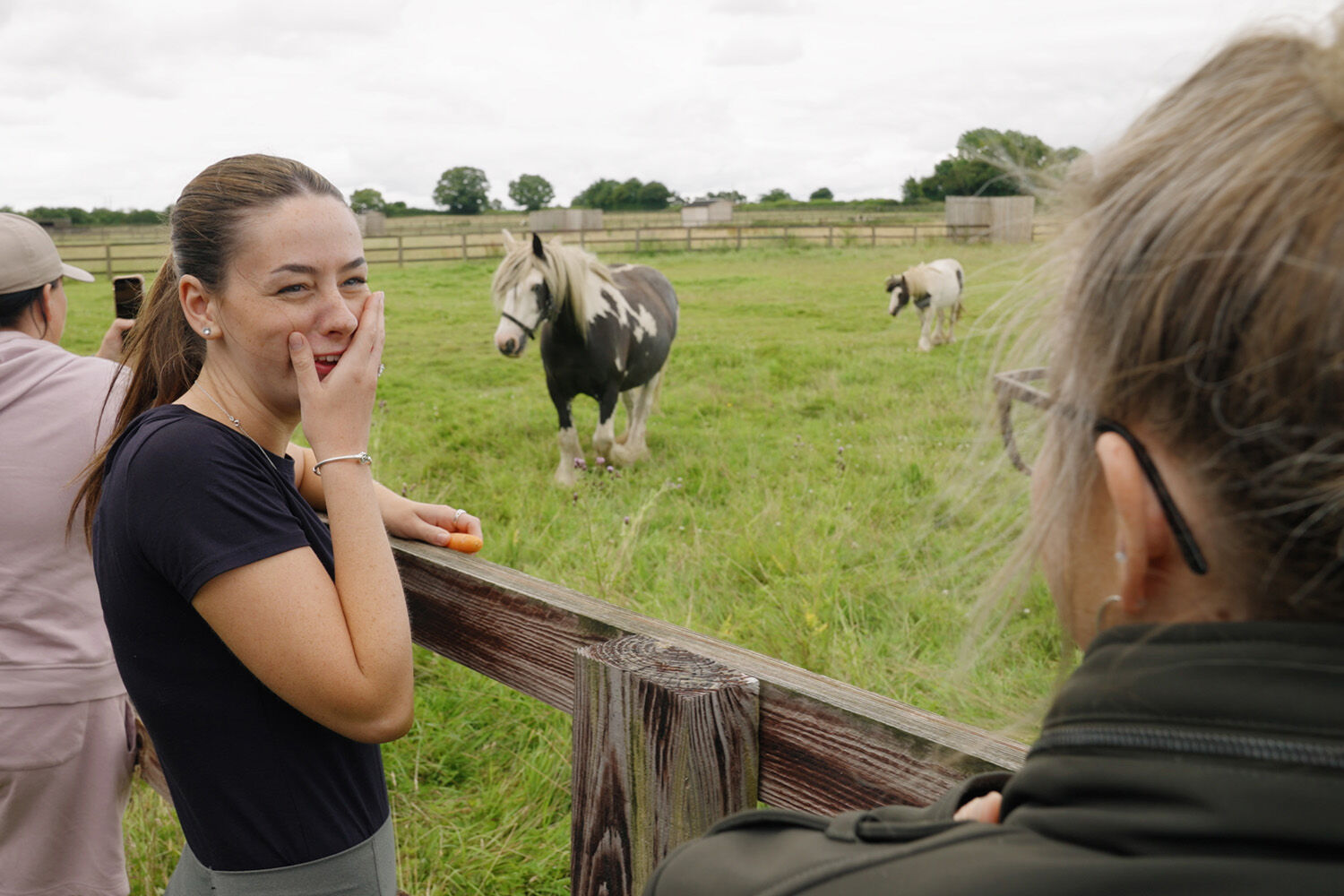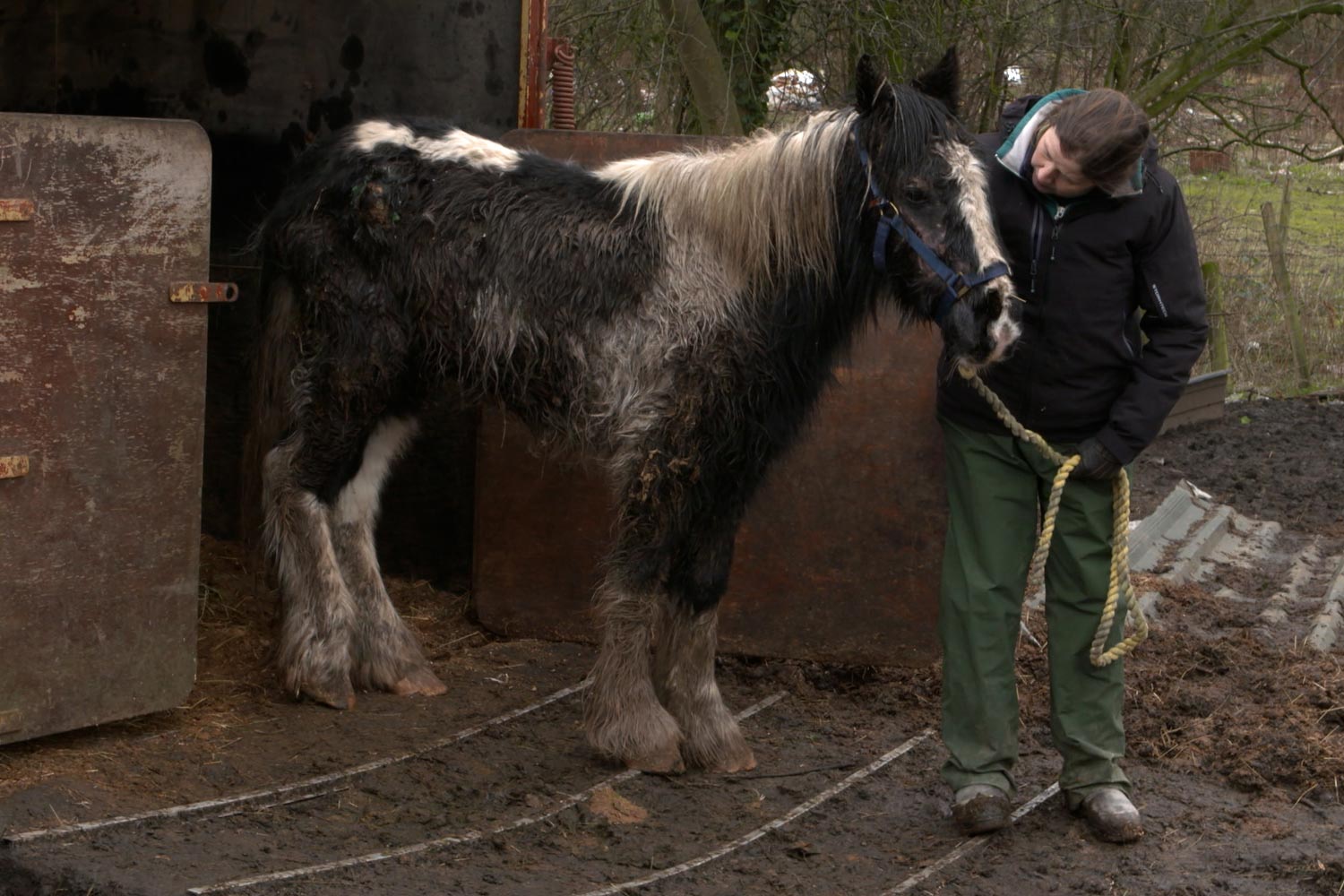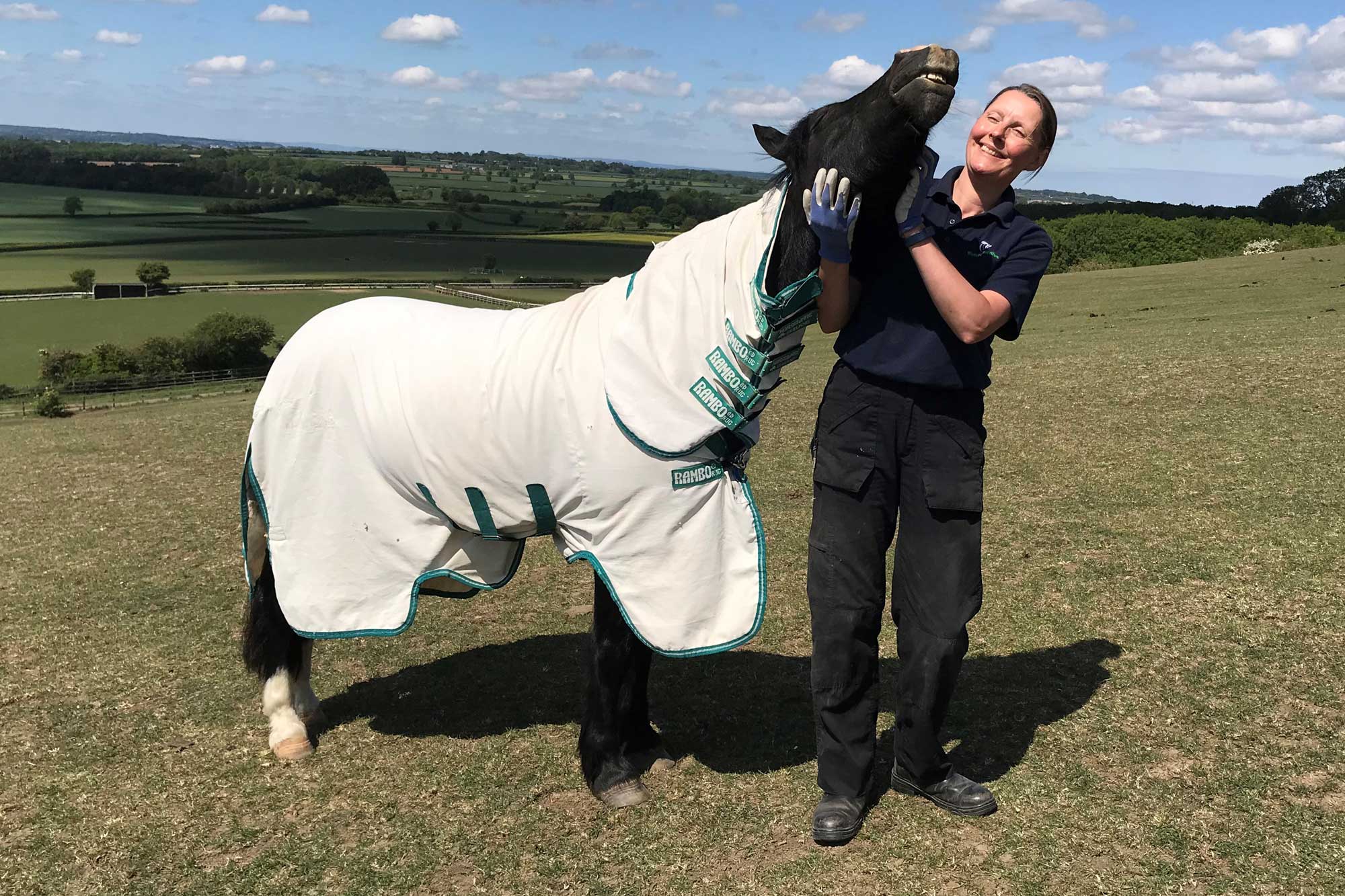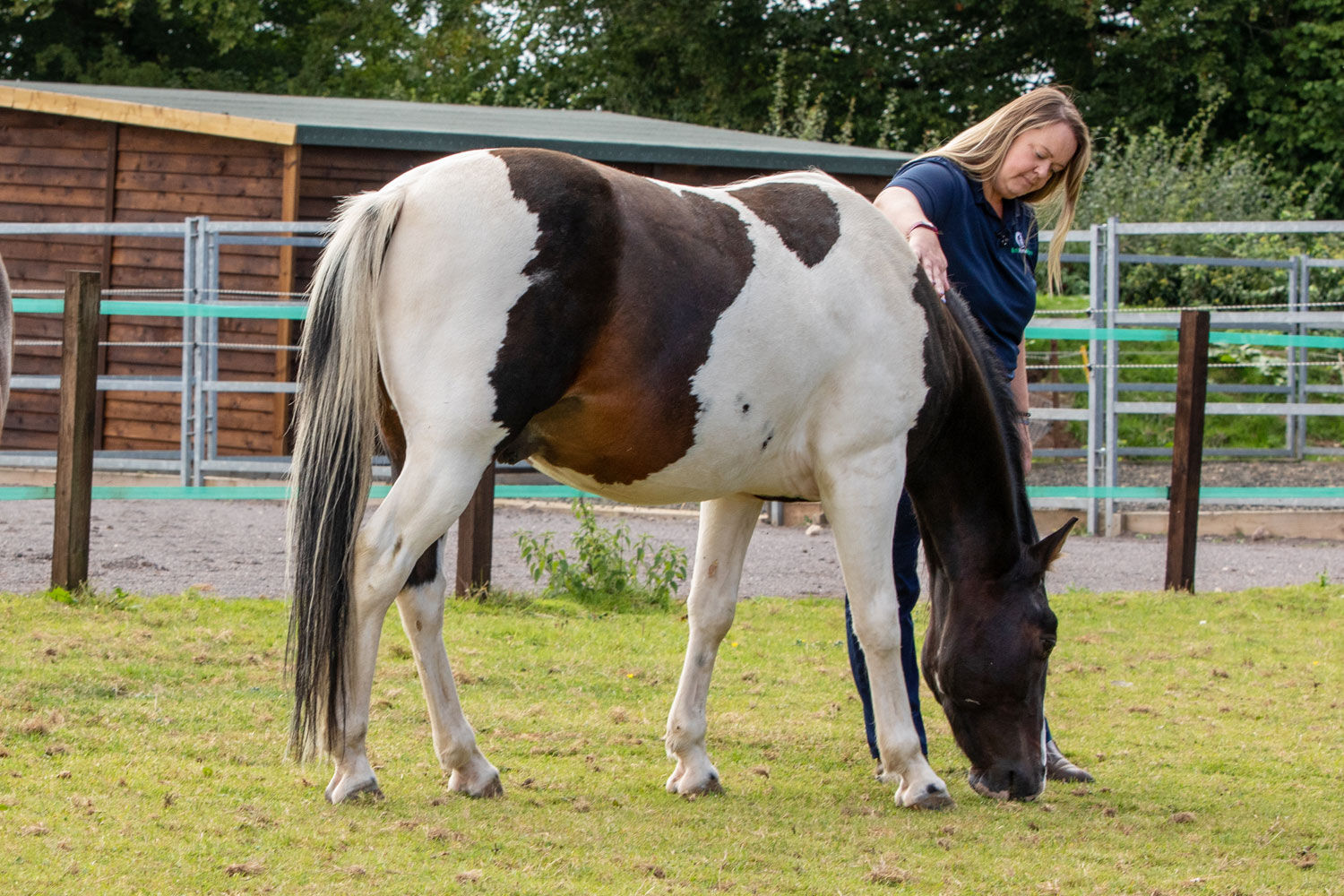The story of 13 neglected horses who have been rescued by our charity.
Posted on 12/09/2024

A group of horses rescued by our charity from a ‘field of death’ in Harefield in the London Borough of Hillingdon have been reunited with the women who refused to stand by and watch them suffer.
Without veterinary care or shelter and in an environment littered with dangerous hazards, the horses suffered in silence for years – their only hope being the few people who lived close by.
The caring residents worked together, looking out for the herd, providing hay and water and hosting fundraising events to support them – but they knew more needed to be done.
One of those women was Zoe who said:
They were sad but they had fight in them and that really resonated with us. We all got together and thought, ‘we want to help them’, we got more out of it than they ever did to be honest. But when they were dying in front of us, that was when we knew we had to do something (more).”
“We first found out about World Horse Welfare when we started pressuring the council – and they were just brilliant.”
Our field officers were aware of the horses and had been monitoring them for some years but were unable to locate an owner, as none of them were microchipped.
We were hampered further by the fact the land was owned by a consortium of over 70 people and the horses’ basic needs were being met by the kind-hearted women who wanted to help them – which made building a case to take them away difficult.
Our Field Officer Becky Bedson said:
I first got involved with the Harefield Horses about four years ago. Where we had welfare cases with individual horses – some got out on the road and hit by a car, and sadly a mare died giving birth.
“Whilst we believed the horses were owned, we weren’t able to find out who the owners were – as they didn’t have microchips, so there was no way of knowing. But what we did know was that they weren’t being cared for.
“With each passing winter their situation deteriorated, and each year, ill and injured horses were removed from the group. It got to a point where we needed to do something as a collective, for the whole herd, because the historical evidence said that they were all likely to suffer if we didn’t rescue them.
“We wouldn’t be able to do this work if it wasn’t for the public reporting welfare concerns to us and donating to our charity.”
In the end, our charity and the local authority were able to work together with a vet and other charities to get the horses removed.
Thirteen horses were rounded up and taken to our Hall Farm Rescue and Rehoming Centre in Norfolk where they were assessed by the team of grooms, vets and farriers.
Today their future looks much brighter – they are all in great condition and have had rehabilitation and handling which will hopefully lead to them finding loving homes.
Once all the horses were settled at the farm and in good health, the women who made their rescue possible were invited to Hall Farm to see how well they are now doing.
Including Liv who said:
It’s just been incredible seeing how far the horses have come and to see what everyone has done for them. I think it goes without saying World Horse Welfare has done incredible amounts. They have given them so much love and attention which is so important in building a bond between human and horse and it’s given us a lot of motivation to keep doing what we are doing in supporting them.”
Topics
Related News

TV ad launches to highlight plight of neglected horses
The heart-wrenching ad tells the story of Barney, a plucky little pony determined to get help despite his terrible condition.

Film showing tragic story of mare Rhosywn captures impact of horse crisis
World Horse Welfare today releases perhaps our most hard-hitting film to date showing the tragic story of a mare called Rhoswyn and our efforts to help her.
Recommended Blog Posts

Sweet itch: what is it and how do we manage our ponies who have it?
Glenda Spooner Farm Rescue and Rehoming Centre Assistant Centre Manager Sara Jerman explains more.

Caring for 19 unhandled ponies? All in a day’s work!
Glenda Spooner Farm grooms Amy and Emily describe how a group of unhandled new arrivals kept them very busy last year.

End of life: a decision most horse owners dread, but how do you prepare for it?
Field Officer Penny Baker shares her thoughts on how horse owners can prepare for the decision nobody wants to have to make.
Enjoy reading stories like this?
Join over 55,000 other horse lovers and sign up for our email newsletter

Join over 55,000 other horse lovers and sign up for our email newsletter
Sign me up now